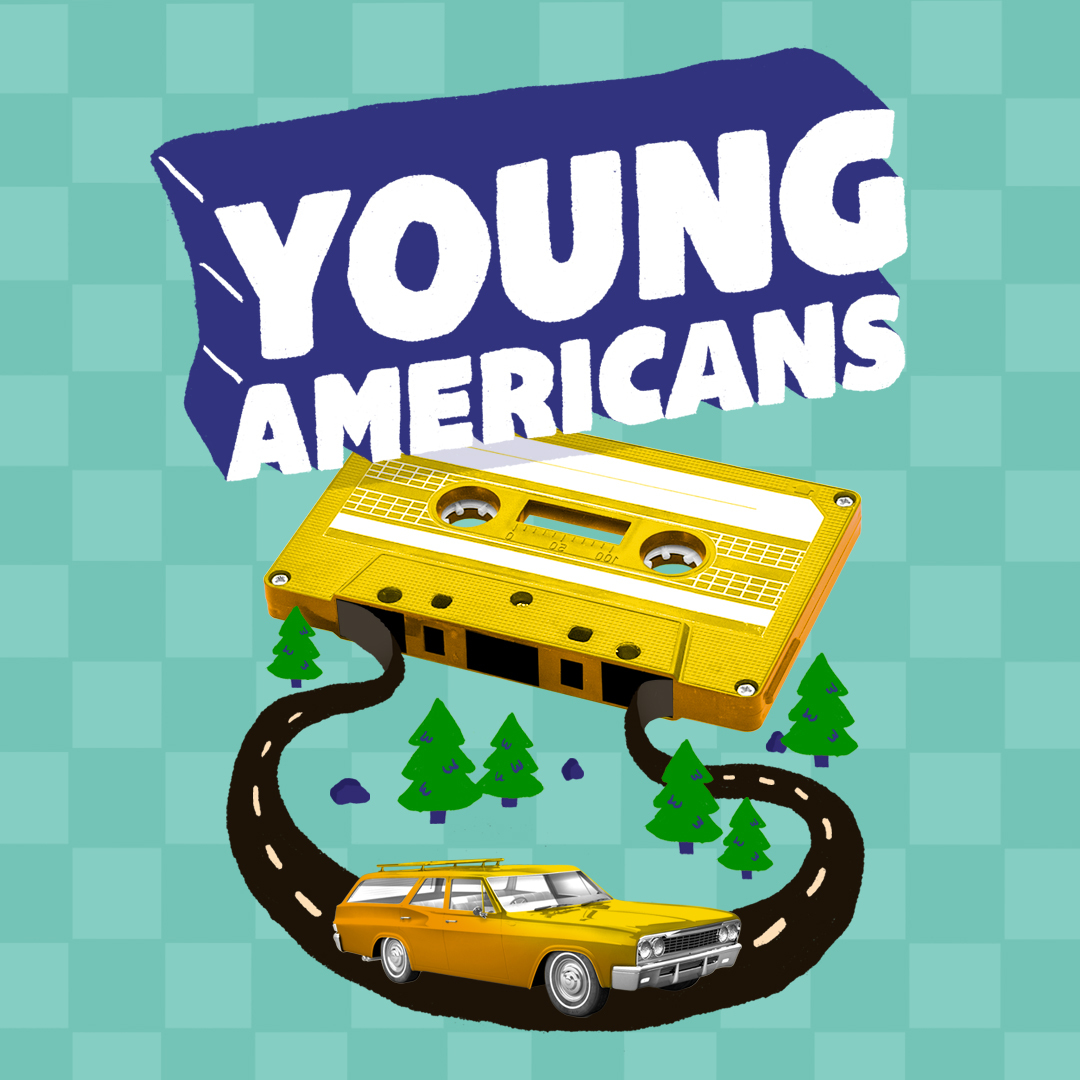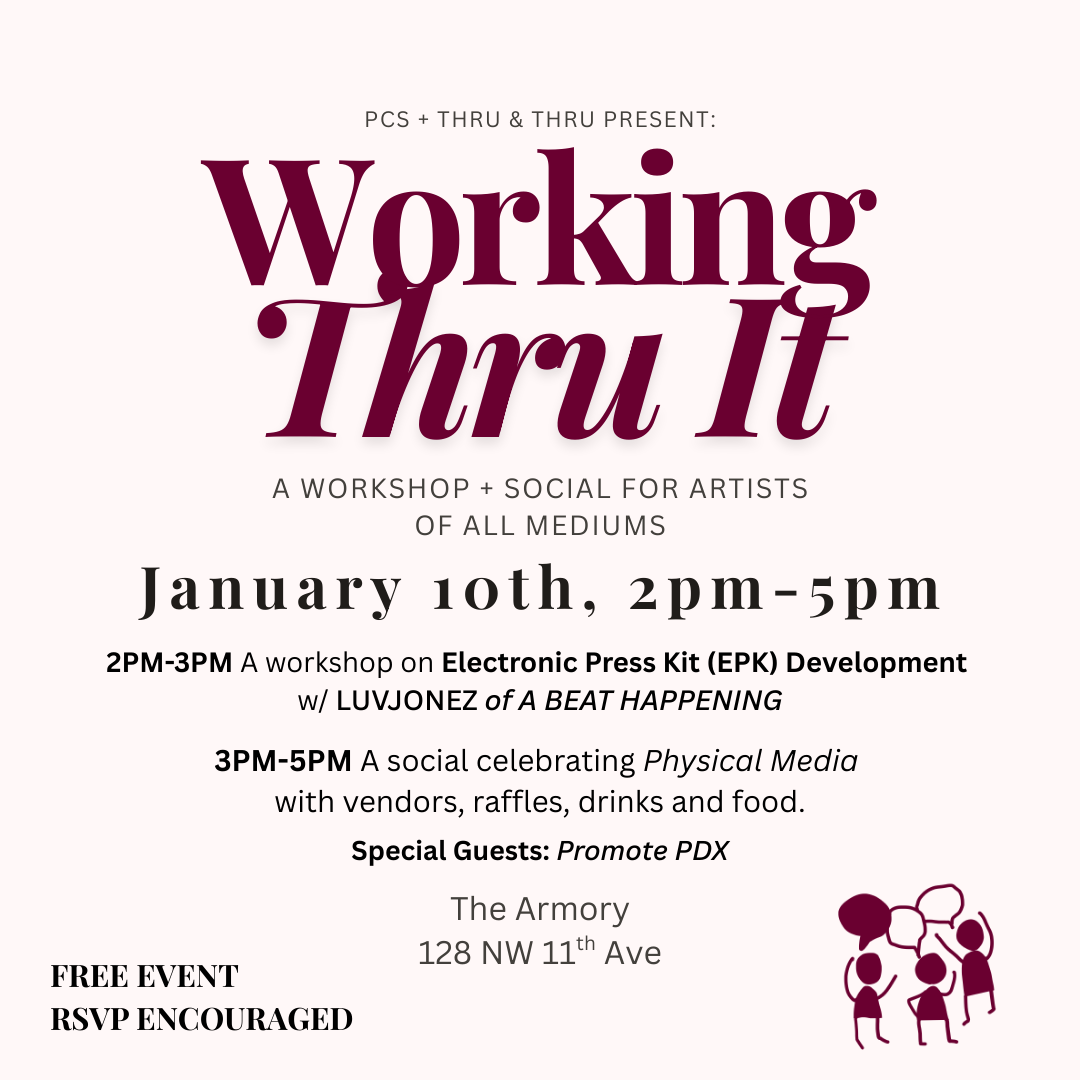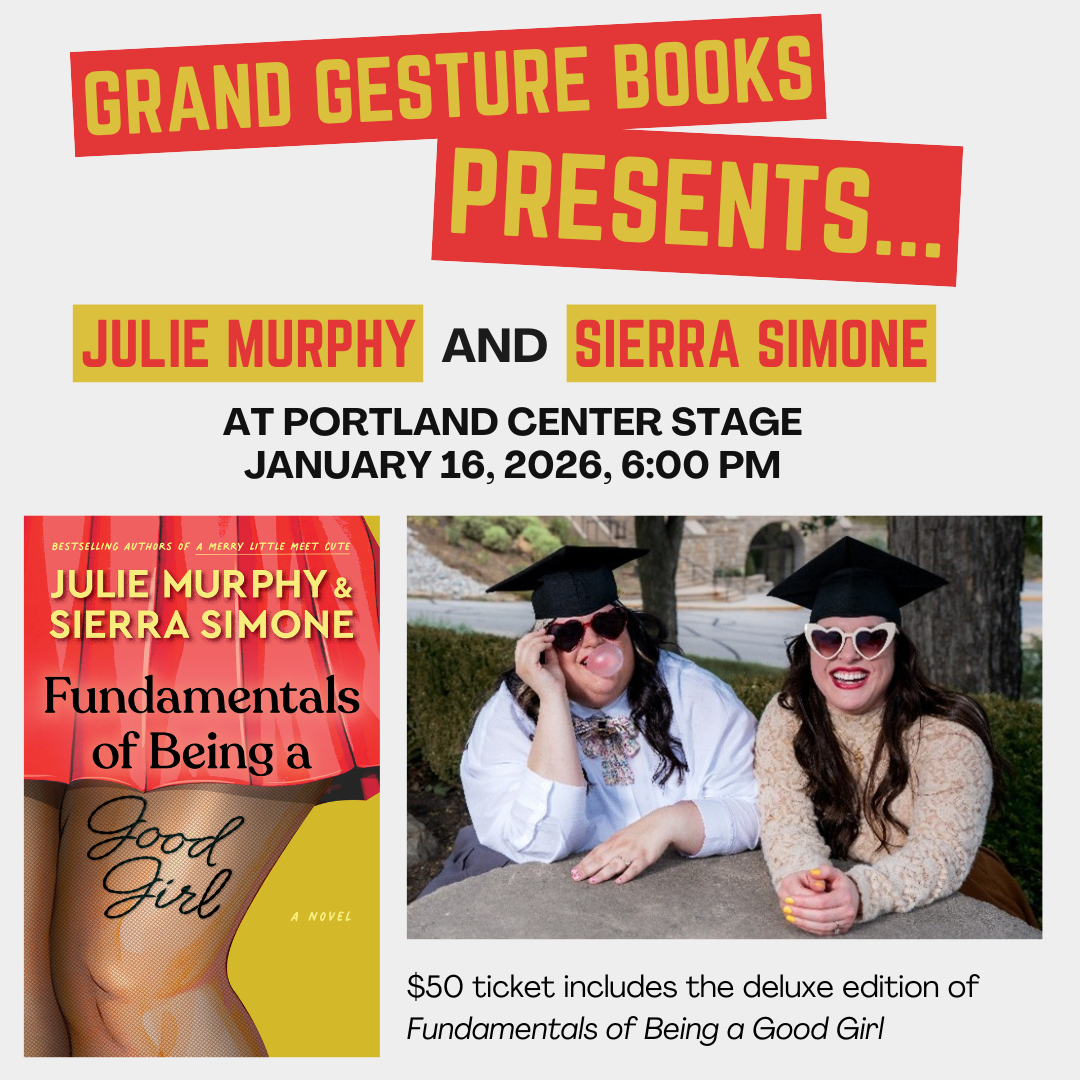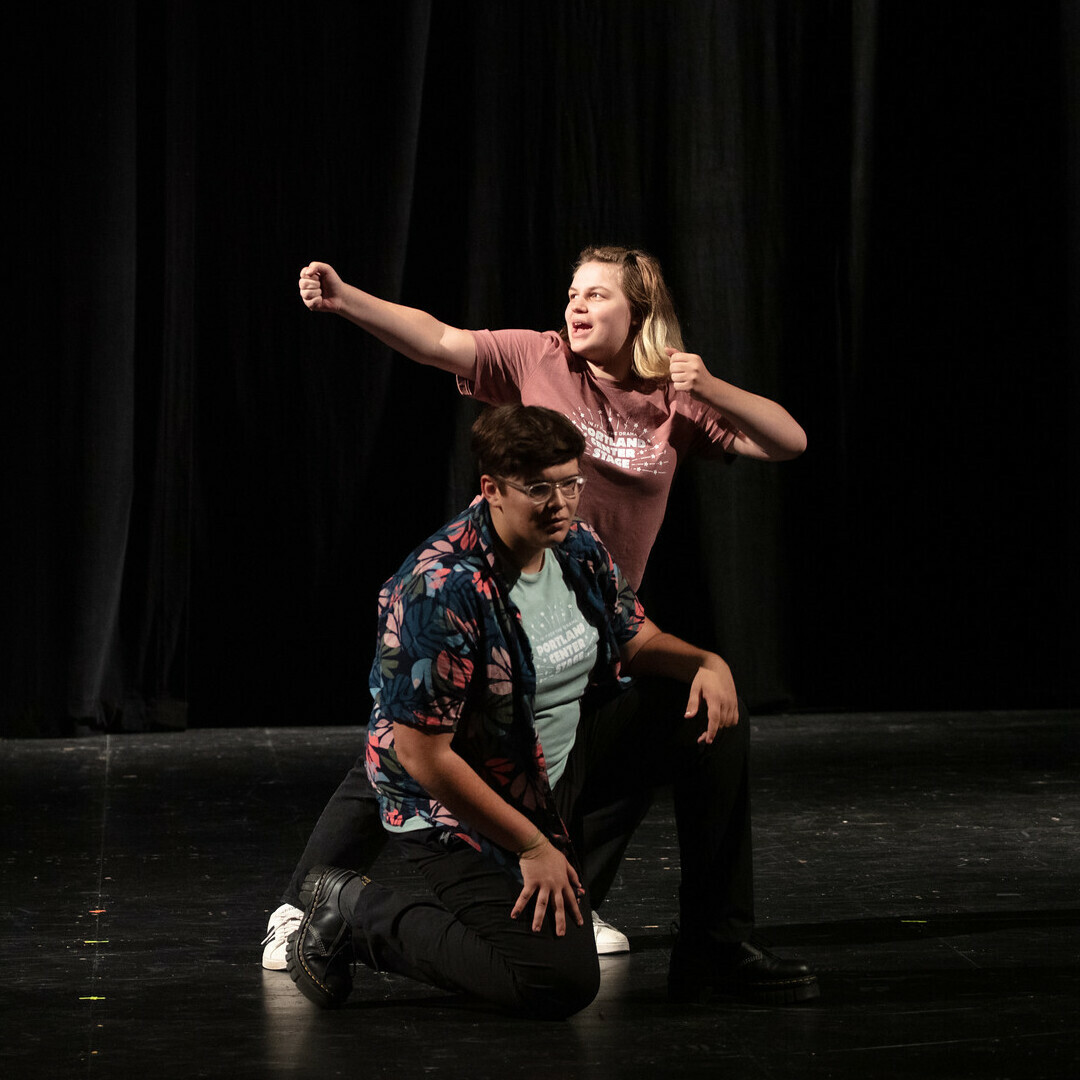A Conversation with Playwright Lauren Yee & Director Desdemona Chiang
Originally commissioned as part of Portland Center Stage’s Northwest Stories program, Young Americans brings together long-time collaborators, playwright Lauren Yee and director Desdemona Chiang. PCS Literary Manager Kamilah Bush sat down with them for a conversation about their relationship, developing new work, and bringing this world premiere to life.

Playwright Lauren Yee (L) and director Desdemona Chiang (R).
Kamilah Bush: You two have worked together quite a bit! How many shows have you done together?
Desdemona Chiang: I’ve done a lot of Lauren’s plays, but this is only the second time I’ve premiered one of your plays.
Lauren Yee: Yeah, I think that’s true.
D.C.: But I’ve directed almost all of them in other iterations. I think the last thing I premiered was Ching Chong Chinaman in 2008.
L.Y.: Crevice!
D.C.: Oh I premiered Crevice in 2012! But I think I’ve directed five or six of her other plays. This might be my sixth.
L.Y.: We’ve also developed a bunch of stuff — some of them that got premiered by other directors, some of them that never saw the light of day! I say to myself “Oh, Des is living in this city. Let me go there and stay with her and work on something.”
D.C.: We’ve spent a lot of time going “Hey! Come to my apartment and I’ll have wine and cheese and let’s read Lauren’s new play.” Just getting friends together. We’ve been doing this a long time.
K.B.: When did you meet? When did this collaboration begin?
D.C.: In 2005. I was a young director in San Francisco working with the Asian American Theater Company and there was a festival called the Bay One Acts. The artistic director had to drop out of directing at the last minute and he called me and said, “Hey Desdemona, there’s this new writer Lauren Yee. She’s super exciting. She’s a student at Yale, it’s a fun comedy. Will you do it?” And I’m like “Sure! Sounds great!” and then Lauren came out and saw the play, and that’s how we met.
L.Y.: And in that play was Daveed Diggs! Between Daveed, Des, and I — one of us has a Tony Award. Guess who?
K.B.: So you’ve developed work together a lot. Can you talk about workshopping Young Americans together?
D.C.: Lauren is so game to be pitched to. I feel like I know very few writers who are willing to say “What do you think it should be?” I can say “Here’s my bad idea!” and she’s just so receptive to and forgiving of my bad ideas.
L.Y.: Are other playwrights not like that?
D.C.: I just feel like you come into the room having written something and then a question comes up and you just say “Say more about that!” The detours and hairpin turns this plot has taken, I feel like have to do with your receptiveness to scrap what seemed to be sometimes like a pretty foundational idea, but also staying true to what you think the heart of the piece wants to be.
L.Y.: I am pretty game to try things. It’s just so hard to write a play. Sometimes there’s an assumption that the playwright knows best and I do think we are tasked with guarding the soul of the play but I think great ideas can come from anywhere. I very humbly will take them from any direction. Credit to Desdemona for being someone who can roll with that. I can say “Just for today, what if it’s X instead of Y and let’s see where that leads us.”
K.B.: This play started as one of PCS’ Northwest Stories commissions. How is that different than just sitting down to write on your own?
L.Y.: It’s about knowing you’re writing for a specific audience. This is a co-production with Pittsburgh Public, so it will go there as well, but it is being performed for a Portland audience who knows Portland. Rather than writing a play set in Portland, I was interested in people who are traveling to Portland or have an idea of what Portland means to them in their heads. It became a fun challenge.
K.B.: And the title, Young Americans — what came first, the story or the David Bowie song?
L.Y.: I knew it would be about road trips and whenever my husband and I have done big road trips, they always come with their own set of playlists of songs. Around the time I started writing, I stumbled onto the David Bowie stuff and thought “That’s a great title!”
D.C.: You and your husband have road tripped to every state, right?
L.Y.: Not every state.
D.C.: But you’re checking them off.
L.Y.: From college, until we had kids, when we had free time we would road trip somewhere. Go to the farthest ends of Texas and drive for six hours before we would stop. It was a really great way to see parts of the country that I otherwise would never have been exposed to. It was kind of staggering to see the geological diversity in America.
K.B.: It’s more than just a title too — this play is uniquely American but also centers the immigrant experience. Can we talk about that beautiful swirl of identity, of being both of this place and of somewhere else?
D.C.: I was recently having a conversation with a friend who was also born in Taiwan and we were talking about this idea of being Chinese-Hyphen-American. And she said something really profound. She said “I’m not Chinese-American, I’m Chinese and I’m American. I am not other in this nation. I am of this nation and of another nation.” It got me thinking, what is the actual rubric for being American? Is it speaking English and paying taxes?
L.Y.: Each country has different ideas about what it means to be from that country. Is it all just passports? One feature of the play is that these characters are immigrants — we know that they are not white — but beyond that, I left it open. We’re thinking about how the actors’ own identities infuse the story. I hope it can be a gift to performers and that we see different people within these roles.
K.B.: I’m always interested in people’s investment in being American.
D.C.: The characters in this play have different approaches to that. One is enthusiastic to participate in the “mainstream” culture and one is more resistant. Does that make one less American than the other? Like my mother — she banks Chinese, she shops Chinese, she speaks Mandarin. One could argue that she’s not culturally very American but she has an American passport and she pays taxes — she participates in the economic, social, political fabric of this country. So, I don’t know. And the only people who are truly of this land, the Indigenous people, are some of the most marginalized people in the country. It’s such a complicated question.
K.B.: This play also centers a parent-child relationship. What keeps bringing you back to that theme, Lauren?
L.Y.: I’m always fascinated by this impossibility of knowing who your parents were before they had you. Just the mystery of time. The only real difference between me and my parents is that they’re older than me. Once upon a time, they were confused, rebellious teenagers too.
D.C.: I don’t know how much of this is because I’m Chinese or just because it’s a universal notion but family has always been the sociopolitical center for me. Partially because I come from a culture where status matters — are you the eldest, the youngest, male, female, maternal side, paternal side? I’m really interested in family as politics. It’s why I love The Crown or Succession! You can’t pick your family, they are your origin story. The Dalai Lama says the three things that are hardest to detach from are parents, mentors, and enemies.
K.B.: Last question. What brings you joy?
D.C.: Good food. That’s it.
L.Y.: I think a lot of my theater making is centered around joy. Sometimes that manifests in a lot of heart, sometimes in goofy jokes, but I love celebrating an ensemble of people and giving them fun things to do.
Portland Center Stage is committed to identifying & interrupting instances of racism & all forms of oppression, through the principles of inclusion, diversity, equity, & accessibility (IDEA).













